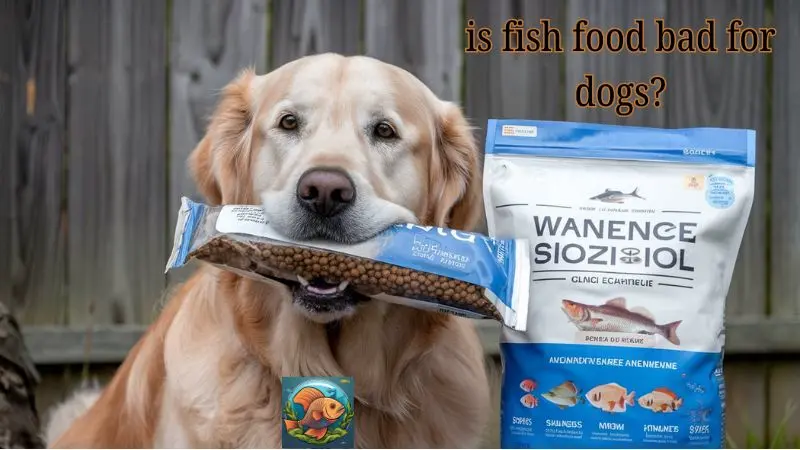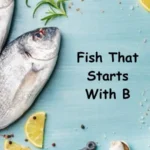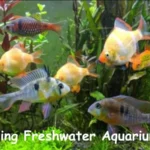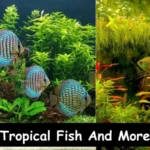marine life blog
Is fish food bad for dogs?
When it comes to the diet of our beloved pets, especially dogs, it is crucial to understand the impacts of various foods and supplements they may encounter. The question “Is fish food bad for dogs?” often arises among pet owners, especially those who keep both dogs and fish. In this essay of fishtankmagic.com, we will delve into the ingredients of fish food, its potential effects on dogs, and whether or not it is harmful for them to consume.
Understanding Fish Food and Its Ingredients
Fish food is specifically designed to meet the nutritional needs of aquatic animals. It comes in various forms such as flakes, pellets, and freeze-dried options, each tailored to provide a balanced diet for different species of fish. The main ingredients in fish food usually include fish meal, shrimp meal, algae, wheat, and various vitamins and minerals. These components are vital for the health of fish, providing them with the necessary proteins, fats, and carbohydrates to thrive in their aquatic environment.
However, the nutritional needs of dogs are vastly different from those of fish. While dogs are omnivores and can eat a variety of foods, their diet must be balanced with the right amounts of proteins, fats, carbohydrates, vitamins, and minerals specific to their species. The question arises whether the components of fish food, which are not formulated with dogs in mind, might pose a risk to their health.
Potential Risks of Dogs Consuming Fish Food
To answer the question “Is fish food bad for dogs?” it’s important to look at the potential risks involved when a dog consumes fish food. Here are some considerations:
- Nutritional Imbalance: Fish food is not designed to meet the nutritional needs of dogs. While it may not be toxic, it lacks essential nutrients that dogs require. Prolonged consumption of fish food could lead to deficiencies in key vitamins and minerals, such as calcium and phosphorus, which are vital for bone health and overall well-being in dogs.
- High Protein Content: Fish food is often high in protein, which is necessary for fish but can be excessive for dogs. While protein is an important part of a dog’s diet, too much can lead to issues such as kidney damage over time. Dogs require a balanced amount of protein, fat, and carbohydrates, and an excess of one nutrient can disturb this balance.
- Additives and Preservatives: Some fish foods contain additives and preservatives that may not be suitable for dogs. These ingredients can cause allergic reactions or digestive problems in some dogs, leading to symptoms such as vomiting, diarrhea, or skin irritations.
- Potential Toxins: Certain types of fish food might contain ingredients or contaminants that are harmful to dogs. For example, some fish food products could be contaminated with heavy metals like mercury or might contain ethoxyquin, a preservative used in some pet foods that has been linked to health issues in dogs.
Cases Where Fish Food Might Be Consumed
There are various scenarios where a dog might consume fish food, whether intentionally or by accident. Some of these situations include:
- Curiosity: Dogs are naturally curious creatures and may be drawn to the smell of fish food, mistaking it for a treat.
- Access: If fish food is stored in an easily accessible place, a dog might get into it and eat it without the owner’s knowledge.
- Shared Spaces: In households where both dogs and fish are kept, a dog might have more opportunities to come into contact with fish food.
In these cases, it’s important for pet owners to be vigilant and keep fish food out of reach to prevent accidental ingestion.
What to Do If Your Dog Eats Fish Food
If your dog accidentally consumes a small amount of fish food, it is likely not cause for immediate concern. However, you should monitor your dog for any signs of digestive upset, such as vomiting, diarrhea, or lethargy. If these symptoms occur, or if your dog has consumed a large amount of fish food, it is best to consult your veterinarian. They can provide advice on whether any medical intervention is needed and what steps to take to ensure your dog’s health.
In more severe cases, such as if a dog has consumed a large quantity of fish food or if the fish food contains potentially harmful ingredients, a visit to the vet might be necessary. The vet might recommend inducing vomiting, administering activated charcoal to prevent absorption of toxins, or providing supportive care such as fluids or medications to manage symptoms.
Safe Alternatives to Fish Food
To avoid the risks associated with dogs eating fish food, it’s best to provide your dog with foods and treats that are specifically formulated for their nutritional needs. There are many safe and healthy options available that can satisfy a dog’s curiosity or desire for a fish-flavored snack:
- Dog-Specific Fish Treats: Many commercial dog treats are made with fish as the primary ingredient, providing a safe and nutritious alternative to fish food. These treats are formulated to meet the dietary needs of dogs and are free from harmful additives.
- Cooked Fish: If your dog enjoys the taste of fish, you can offer them small amounts of cooked fish, such as salmon or whitefish, as an occasional treat. Make sure the fish is fully cooked and free of bones to prevent choking or injury.
- Fish Oil Supplements: Fish oil supplements are commonly given to dogs to support skin, coat, and joint health. These supplements provide the beneficial omega-3 fatty acids found in fish, without the risks associated with fish food.
By choosing appropriate treats and supplements, you can provide your dog with the benefits of fish in a safe and controlled manner.
Conclusion
So, Is fish food bad for dogs? The short answer is that while fish food is not inherently toxic to dogs, it is not suitable for them to consume regularly or in large quantities. The differences in nutritional requirements between dogs and fish mean that fish food does not provide the necessary nutrients that dogs need to stay healthy. Additionally, the potential for high protein content, harmful additives, and contaminants in fish food poses risks to a dog’s health.
To ensure the well-being of your dog, it is important to keep fish food out of their reach and provide them with a balanced diet that meets their specific nutritional needs. In case of accidental ingestion, monitoring your dog and consulting with a veterinarian if any symptoms arise is crucial. By taking these precautions, you can protect your dog from the potential dangers of fish food and ensure they live a happy, healthy life.
In summary, while the occasional nibble on fish food might not be immediately harmful, it is not advisable to let dogs eat fish food as part of their diet. Instead, focus on providing them with foods and treats that are designed with their health in mind.












